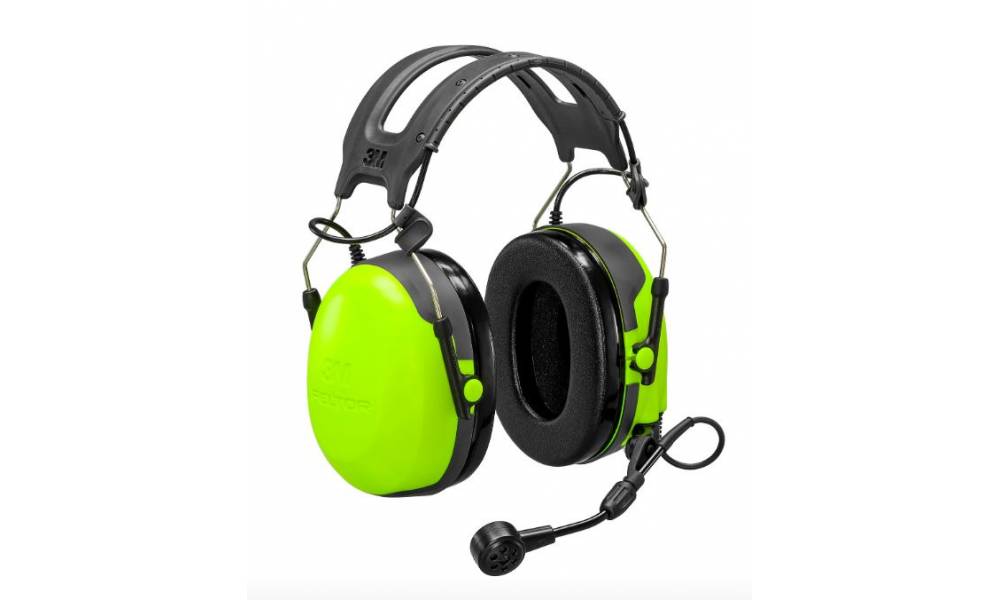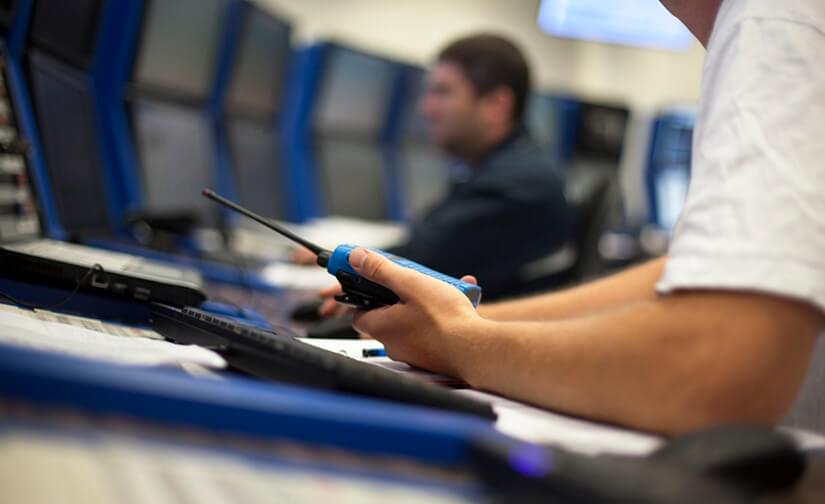Whether for business or personal purposes, there are thousands of situations where clear and instant communication is essential. It might be for safety reasons, business efficiency, or just keeping in touch with the kids in the garden. Whatever the reason, keeping lines of communication open is hugely beneficial.
Two of the main tools for achieving this are two-way radios and mobile phones.
Let’s start with an obvious statement – If you want to keep in touch with Aunt Becky in Australia, then the mobile phone is the hands down winner, this is outside the performance remit of any walkie-talkie.
But when we look at shorter distances, say up to a few miles, then the picture is different, and we can draw direct comparisons between the two methods.
That’s what this article sets out to do. On a level playing field where both methods are feasible options, which is best?
Read on to find out more, the results might just surprise you.
Comparing Walkie-Talkies and Mobile Phones
There is no doubt that smartphones have changed the way we go about our lives. But, in many situations, they aren’t the only communications option, and modern walkie-talkies are more than a match for them.
In this section, we look at various aspects of how the two methods compare in a head-to-head comparison.
1. Ease of use
It is easy to just say that walkie-talkies are simpler to use than mobile phones and leave it at that. After all, to communicate with a walkie-talkie is simply a matter of pressing a button and talking, whereas with a phone, you need to unlock it, pull up the right app, open your contacts, dial etc.
But the ease of use that a walkie-talkie offers runs deeper than just this. While this simplicity is the foundation of an efficient communication system, the benefits of one-click communication can be a game-changer:
- One-to-many communication – While to one degree or another, a mobile solution can offer limited one-to-many functions, this is not achievable without software and technical nuance on the part of the users. Walkie-talkies make this process as simple as pressing that transmit button.
- Simple to setup – Imagine a large team scenario when a new team member is introduced. If it’s a company mobile phone, then a new phone will need to be set up from scratch with all the necessary software, contacts etc.
If they use their own phone, then most of the necessary steps will still be required. With a walkie-talkie solution, you simply hand them their radio, and the job’s done!
- Greater efficiency – Unlike mobile phones, which have a huge range of functions, walkie-talkies are designed with one goal in mind – To make communication as efficient and simple as possible. In situations where communication is essential and reliable, walkie-talkies are the most efficient solution.
2. Operating limitations
Mobile phones are restricted by the necessity to be within range of a cell phone mast. This means that in many places where communication is of the highest importance, a mobile phone can let you down.
Rural and remote areas, network outages, power cuts, all these factors can stop a mobile phone from working, just when you need it the most.
Compare this against walkie-talkies – Two-way radios are effectively their own broadcast mast, there is no reliance on third-party mobile or wi-fi networks, as long as you are within range of your buddies, a walkie-talkie works regardless of the location.
3. Cost
When comparing the two devices, the walkie-talkie option comes out as the clear winner in two distinct areas.
- Purchase cost – It doesn’t matter whether you draw a comparison between the top of the range models or entry-level models. A walkie-talkie solution will always come out as the cheaper option.
There is also what you get for your money. A cheap smartphone will undoubtedly underperform and be a constant source of frustration. Whereas even basic walkie-talkies will still provide instant and crystal-clear communication.
- Ongoing costs – There are no contracts, no data or roaming charges, and no call charges with two-way radios. Once the radios are purchased, that’s the end of the costs.
4. Robustness
Whether we are talking about using these devices as a way of keeping in touch with the kids as they camp out in the garden, industrial scenarios, or anything in between, when it comes to robustness, walkie-talkies are the hands-down winner.
We all know that smartphones are delicate, just look at them wrong, and the screen can shatter. Two-way radios are different, many of them are designed to be all but bulletproof for surviving and functioning in the harshest of circumstances.
But even basic walkie-talkies are far more rugged than smartphones.
5. Battery life
Another area where cell phones can let users down is with battery life. Even a good smartphone will chew through its battery even with light usage. On a busy day, a smartphone might just limp through a workday without needing to be recharged.
On average, a good set of walkie-talkies will have double the battery life of a mobile phone, and even cheaper sets will easily outperform a mobile phone.
6. Safety features
Even if we look at some of the advantages of walkie-talkies that we have already covered, you can see how walkie-talkies are the clear winner when it comes to safety. Instant and crystal-clear communication without the requirement for a mobile signal means in safety-critical situations. Two-way radios are the clear winner.
But that’s even before we have considered the safety feature that many two-way radio models include. Amongst them are lone-worker functions, man-down features, and emergency broadcast buttons.
This makes them ideal as a safety tool for many business applications, but also for hikers, anglers, and extreme sports like mountain biking.
The Conclusion
When we draw a direct comparison between two-way radios and mobile phones in scenarios where both can provide a service, then there is only one possible solution – Walkie-talkies are the outright winner.
They are more versatile, easier to use, efficient, and cost-effective than mobile phones.
If you need any advice about what walkie-talkies are best for you or your business, why not contact us for friendly and impartial advice about how walkie-talkies can simplify your communication needs.





